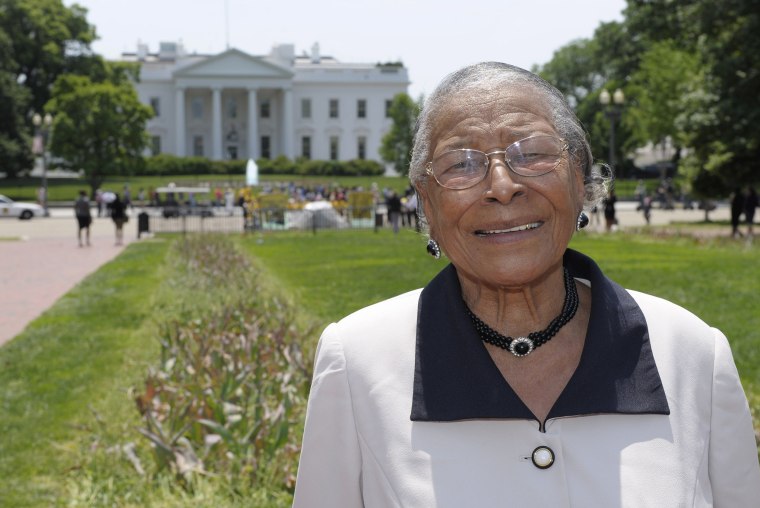You may have never heard of Recy Taylor before the Golden Globes Awards, but Oprah Winfrey wants to make sure you know her name now.
Winfrey invoked Taylor’s story of racism and 𝓈ℯ𝓍ism during her passionate acceptance speech Sunday night for the Cecil B. DeMille Award for lifetime achievement.

Taylor, the black daughter of sharecroppers, was 24 years old when a group of six armed white men kidnapped and raped her in 1944 as she walked home from church in Abbeville, Alabama. Her assailants then left her blindfolded by the side of the road and “threatened to 𝓀𝒾𝓁𝓁 her if she ever told anyone,” Winfrey told the Golden Globes audience.
But the young, married mother did tell someone what happened. Her story made its way to the NAACP, which assigned it to a young activist and investigator named Rosa Parks, who years later became a civil rights icon for refusing to give up her seat on a segregated bus.

Taylor’s case eventually went to trial. But in the Jim Crow era in the South, the all-white, all-male grand jury decided against indicting any of the men, even though one of them confessed.
Winfrey held up Taylor as an early example of the “Me Too” effort during the civil rights movement. Taylor died on Dec. 28, 2017, at the age of 97.
“She lived, as we all have lived, too many years in a culture broken by brutally powerful men,” Winfrey said.
Taylor did live to see her story told in the documentary, “The Rape of Recy Taylor,” which was released last fall. The film detailed how the six suspects initially offered to pay Taylor $600 in hush money that she refused, prompting Parks to push the case to trial.
Winfrey drew a parallel between Taylor’s story and the stories many women in today’s world continue to face.
“For too long women have not been heard or believed if they dared to speak their truth to the power of those men. But their time is up. Their time is up!” Winfrey said. “I just hope that Recy Taylor died knowing that her truth, like the truth of so many other women who were tormented in those years, and even now tormented, goes marching on.”





